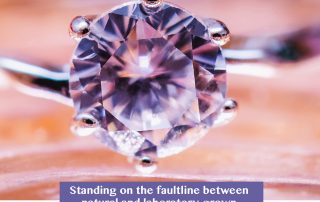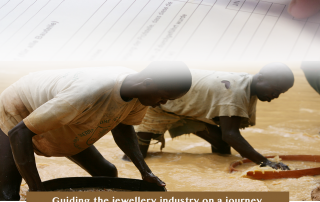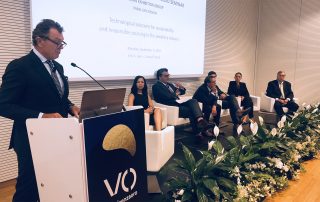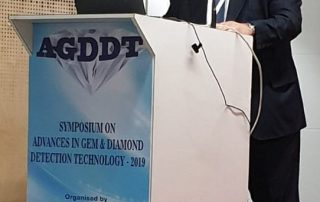CIBJO releases Diamond Special Report examining issues at the faultline between natural and laboratory-grown stones
OCTOBER 2, 2019
With fewer than seven weeks to go to the opening of the 2019 CIBJO Congress in Manama, Bahrain, on November 18, 2019, the fourth of the CIBJO commissions’ Special Reports has been released. Prepared by the CIBJO Diamond Commission, headed by Udi Sheintal, the report focuses predominantly on what it refers to as the “faultline” between diamonds mined in nature and man-made diamonds.
“Because laboratory-grown diamonds prices were deliberately benchmarked against the price of natural diamonds at the outset, the risk exists that the consuming public will continue to associate the one with the other, even after the economics have changed,” Mr. Sheintal writes. “While natural diamonds may once have inflated the price of laboratory-grown stones, the price war in the laboratory-grown diamond sector could have the effect of depressing the value of goods in the natural diamond sector.”
“This makes the task of disconnecting the natural diamond sector and the laboratory-grown diamond sectors even more important, not only from our professional perspective, but from the perspective of the consumer as well. The appeal of both products is different, and so clearly are the economics. They both should be provided the opportunity to thrive, in harmony alongside each other,” he continues.
In the report, Mr. Sheintal calls for the creation of agreed-to rules of engagement between the natural diamond and laboratory-grown diamond sectors in marketing their products, and warns about a readiness to pitch one as being more ethical or environmentally acceptable than the other. “This is not only a self-destructive marketing strategy, but it is also questionable in terms of the claims being made and the data upon which they are based,” he writes.
“Proper rules of engagement need to be created. I suggest that one of them would be for all sides to agree that any stone, which may be precious, but always is a lifeless object, is neither ethical nor environmentally friendly. These qualities refer to the way in which they are mined or manufactured. The onus of responsible behaviour always falls upon the individuals and companies mining or synthesising, processing and marketing these products,” he notes.
To download a full copy of the CIBJO Diamond Commission’s special report, PLEASE CLICK HERE.













